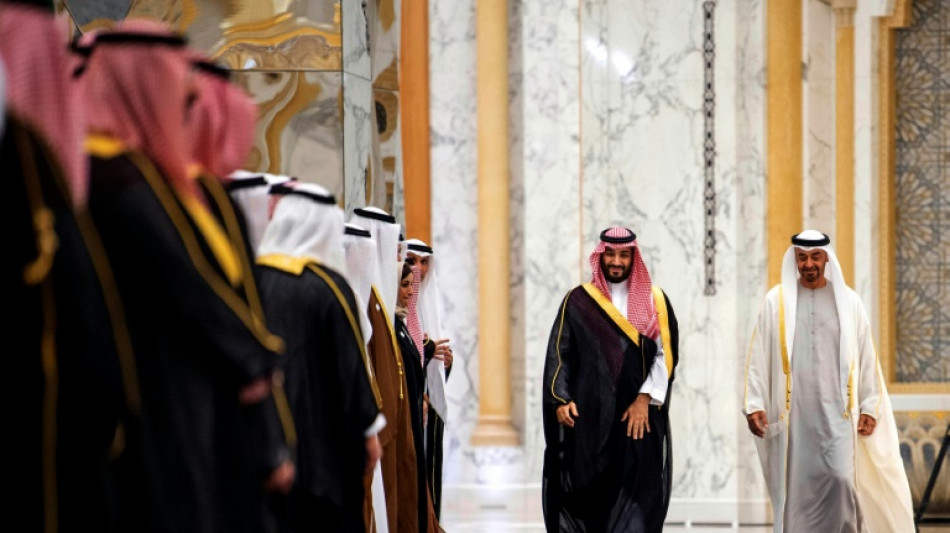
-
 Pakistan shoots down 25 Indian drones near military installations
Pakistan shoots down 25 Indian drones near military installations
-
Xi meets Putin in Moscow as Ukraine reports truce violations
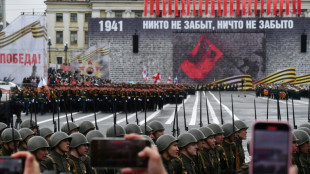
-
 Israel forces close UN schools in annexed east Jerusalem
Israel forces close UN schools in annexed east Jerusalem
-
Trump to announce 'trade deal' with UK
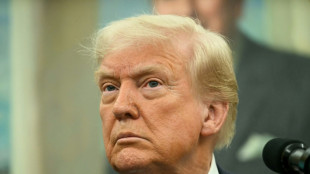
-
 'Jumbo': the animated Indonesian film smashing records
'Jumbo': the animated Indonesian film smashing records
-
Stocks rise on trade hopes, London boosted by reports of deal

-
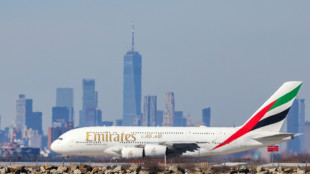 Emirates airline group announces record $6.2 bn gross profit
Emirates airline group announces record $6.2 bn gross profit
-
Accused mushroom murderer sent children to movies before deadly meal

-
 Nintendo forecasts 15 million Switch 2 sales in 2025-26
Nintendo forecasts 15 million Switch 2 sales in 2025-26
-
Australian Greens chief loses his own seat
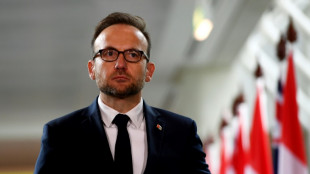
-
 Toyota cites tariffs as it forecasts 35% net profit drop
Toyota cites tariffs as it forecasts 35% net profit drop
-
Wolf protection downgrade set for green light in EU

-
 Global cult following keeps Le Creuset simmering
Global cult following keeps Le Creuset simmering
-
Austria's JJ makes operatic pop soar at Eurovision

-
 Toyota cites tariffs as it forecasts 35% drop in 2025-26 net profit
Toyota cites tariffs as it forecasts 35% drop in 2025-26 net profit
-
Depoliticising Eurovision 'impossible', experts say

-
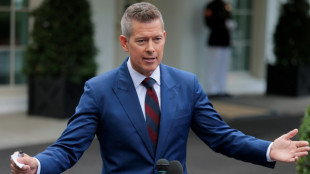 Trump official to unveil ambitious US air traffic control upgrade
Trump official to unveil ambitious US air traffic control upgrade
-
India and Pakistan trade fire after deadly escalation

-
 Knicks rally again to take 2-0 lead over Celtics, Thunder roar back
Knicks rally again to take 2-0 lead over Celtics, Thunder roar back
-
What the shell: scientists marvel as NZ snail lays egg from neck

-
 Eurovision week's opening parade set to start the party
Eurovision week's opening parade set to start the party
-
Trump to announce trade deal with UK on Thursday: US media
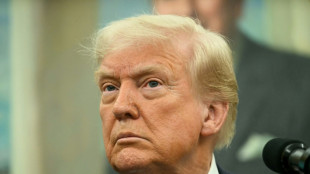
-
 Dhoni says 'nothing to decide now' over retirement plans
Dhoni says 'nothing to decide now' over retirement plans
-
A bitter return for Iraqis kicked out of Europe

-
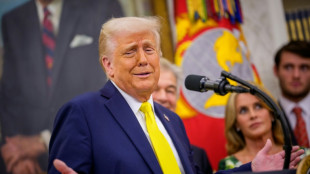 Stocks rise further on growing trade deal hopes
Stocks rise further on growing trade deal hopes
-
Filipino pope could revive priestly vocations in Catholic bastion

-
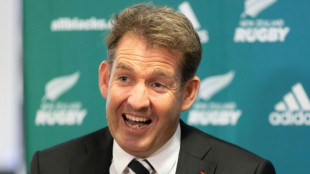 NZ Rugby posts $11.6 mn loss, admits financial model 'not sustainable'
NZ Rugby posts $11.6 mn loss, admits financial model 'not sustainable'
-
NZ Rugby posts $19.7mn loss, admits financial model 'not sustainable' financial model
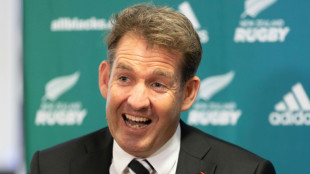
-
 All eyes on Sistine Chapel chimney as conclave enters day two
All eyes on Sistine Chapel chimney as conclave enters day two
-
Digital voting breeds distrust among overseas Filipino workers

-
 Bank of England set to cut rate amid Trump's tariffs
Bank of England set to cut rate amid Trump's tariffs
-
Trump tariff plan brings Hollywood's struggles into focus

-
 'Dream turned nightmare' for Venezuelan migrant deported from US by Trump
'Dream turned nightmare' for Venezuelan migrant deported from US by Trump
-
Acceptance Period for MFE's Voluntary Public Takeover Offer for ProSieben Commences

-
 Hemogenyx Pharmaceuticals PLC Announces Placing to Raise £451,250 and Director’s Dealing
Hemogenyx Pharmaceuticals PLC Announces Placing to Raise £451,250 and Director’s Dealing
-
Agronomics Limited - Liberation Labs Announce Manufacturing Partnership

-
 Malaysia Cybersecurity Center of Excellence Marks First Anniversary with New Partnerships, Scholarships and Expanded Programs
Malaysia Cybersecurity Center of Excellence Marks First Anniversary with New Partnerships, Scholarships and Expanded Programs
-
California leads lawsuit over Trump's EV charging funding change

-
 Meta blocks access to Muslim news page in India
Meta blocks access to Muslim news page in India
-
PSG are deserving Champions League finalists, says Luis Enrique

-
 Bolsonaro leads rally at site of 2023 Brazil insurrection
Bolsonaro leads rally at site of 2023 Brazil insurrection
-
Mexico City prepares to welcome millions for 2026 World Cup

-
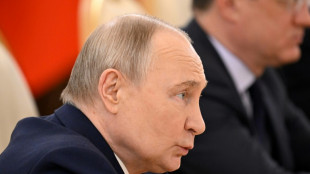 Putin's order for three-day truce with Ukraine enters force
Putin's order for three-day truce with Ukraine enters force
-
Defiant Arteta says Arsenal were best team in Champions League despite painful exit

-
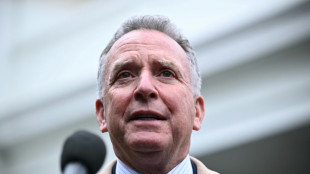 US envoy Witkoff briefs UN Security Council on Gaza, other issues
US envoy Witkoff briefs UN Security Council on Gaza, other issues
-
Tens of thousands take part in Istanbul rally for jailed mayor
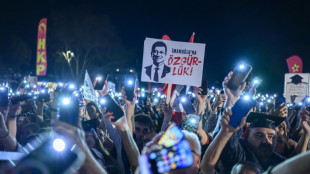
-
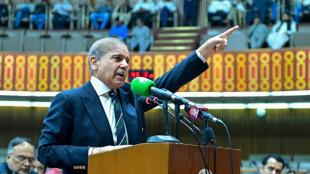 Pakistan warns will 'avenge' deaths from Indian strikes
Pakistan warns will 'avenge' deaths from Indian strikes
-
US Fed pauses rate cuts again and warns of inflation, unemployment risks
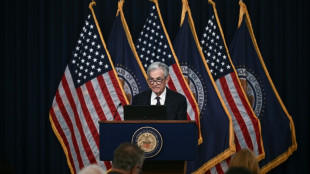
-
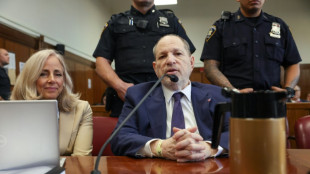 New accuser testifies against Weinstein in New York retrial
New accuser testifies against Weinstein in New York retrial
-
Merz supports easing EU fiscal rules to boost defence spending
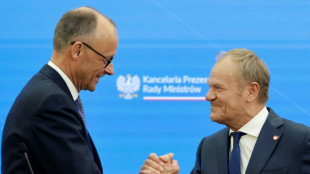

From 'puppets' to players: Ukraine war reveals shift for US's Gulf allies
Russia's invasion of Ukraine has exposed a once unthinkable divergence between Washington and key Middle East allies Saudi Arabia and the UAE, the oil giants that are increasingly independent on the international stage.
The wealthy Gulf nations, which host US forces and have dependably backed Washington for decades, have notably refrained from supporting President Joe Biden's administration as it tries to choke Moscow's lifelines, from energy to diplomacy.
Analysts say the new position, rooted in many discords including the 2018 murder of journalist Jamal Khashoggi by a Saudi hit squad, reveals a turning point in Gulf relations with the US, long the region's protector against neighbour Iran.
"More than an actual shift, this moment is definitely a catalyst for Gulf-US relations," Anne Gadel, a Gulf expert and contributor to the French think-tank Institut Montaigne, told AFP.
"The optics are that they are conscious that they need to prepare for a different Middle East, and that the balance of power is changing in general," she added.
The United Arab Emirates, which currently holds the rotating UN Security Council presidency, abstained last month from voting on a US-Albanian draft resolution condemning the invasion of Ukraine.
And as the now two-week-old war in Ukraine since sends energy costs soaring, the Gulf countries have so far resisted Western pressure to raise oil output in an attempt to rein in prices.
Saudi Arabia and the UAE, meanwhile, have stressed their commitment to the OPEC+ oil alliance, which Riyadh and Moscow lead, despite mounting US sanctions on Russian crude that culminated in a ban on Tuesday.
The UAE reaffirmed that commitment on Thursday, a day after its ambassador to Washington said his country would encourage OPEC to "consider higher production levels".
- Oil for protection -
According to a Wall Street Journal report Tuesday citing Middle East and US officials, Saudi Crown Prince Mohammed bin Salman and the UAE's Sheikh Mohammed bin Zayed Al-Nahyan, their countries' de facto rulers, have both declined US requests to speak to Biden in recent weeks.
However, the report "does not reflect reality", said Emily Horne, spokeswoman for the White House's National Security Council, adding that Biden had spoken to Saudi King Salman last month.
"There have been no requests for calls since that conversation," she said.
But the US president and the crown prince haven't spoken since Biden took office and vowed to treat the kingdom as a "pariah" state over Khashoggi's October 2018 murder in Istanbul that the CIA blamed on the Saudi royal.
Asked by The Atlantic magazine whether Biden misunderstands him, the 36-year-old prince shrugged: "Simply, I do not care."
Founded on an American battleship in 1945, when then Saudi king Abdul Aziz bin Saud and US president Franklin D. Roosevelt first held talks, the US alliance with Saudi Arabia, and later with neighbouring monarchies, has always been defined as an oil-for-protection arrangement.
In the Arab world, the six Arab countries of the Gulf, hosting US and other foreign troops and bases, were long regarded as "puppets" for the Americans.
This started changing a decade ago when the 2011 Arab Spring uprisings sidelined traditional Arab powers such as Egypt and Syria, allowing the stable and prosperous Gulf states to play a more prominent role.
With this change, Saudi Arabia and the UAE, the two biggest Arab economies, made clear that they are seeking an independent foreign policy based on national interests.
The Gulf allies are now fighting Iran-backed Huthi rebels in Yemen and have strengthened ties with Russia and China, while the UAE has established ties with Iran's arch-enemy, Israel.
"The UAE (shouldn't) be projected as a puppet of the United States anymore," Abdulkhaleq Abdulla, a political science professor in the UAE, told CNN this month.
"Just because we have such great relations with America, we do not take orders from Washington, and we have to do things consistent with our own strategy and priority."
- Military downgrade -
Many frustrations have strained relations, including Biden's engagement with Iran, the US refusal to label Yemen rebels as terrorists, and the showdown over Khashoggi's murder.
But security is at the heart of the matter: the lack of a strong US response when Saudi's Aramco oil facilities were attacked in 2019, and Washington's announced desire to downgrade its military commitments in the Middle East.
"Gulf countries like Saudi Arabia and the UAE... are no longer willing to rely on the United States as the ultimate guarantor of security," Hussein Ibish from the Arab Gulf States Institute in Washington wrote last week.
"While the United States remains a primary strategic partner, these... vulnerable states with much to lose have no choice but to diversify their diplomatic options and strategic toolkits."
"The rise of a multipolar world involving much greater global power and influence, mainly by Russia and China, is inevitable," he added.
F.Schneider--AMWN